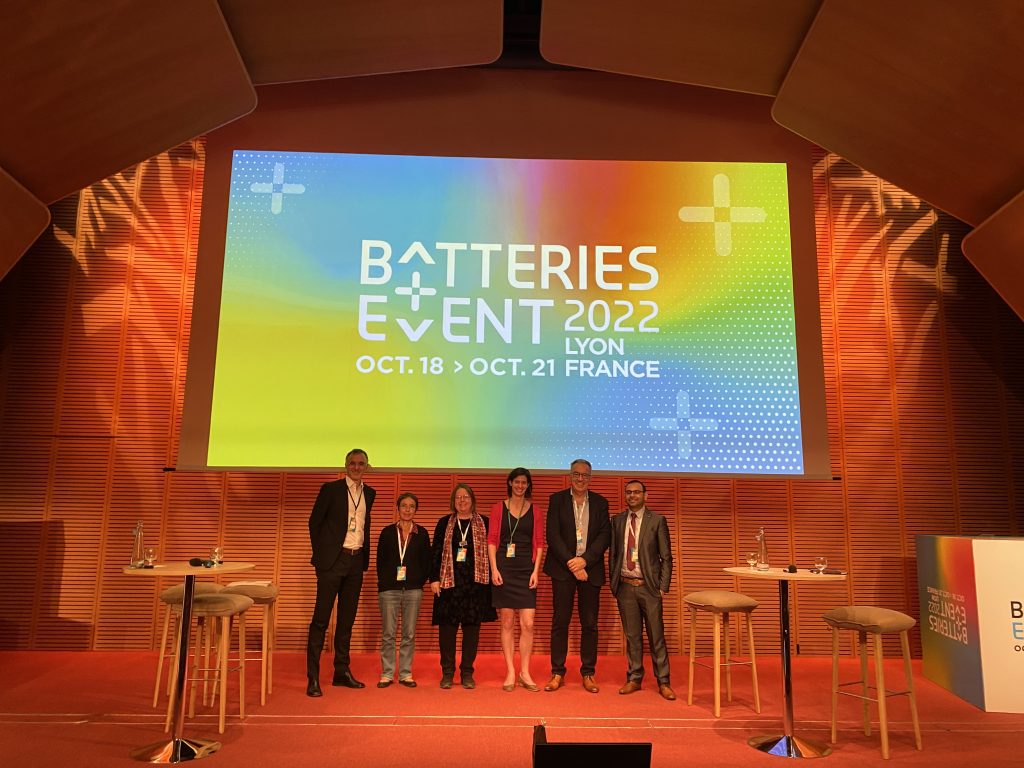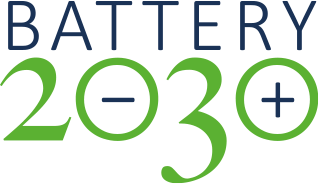At the Batteries Event meeting in Lyon, representatives from Flanders, France, Germany and Switzerland presented ongoing battery R&I activities as a part of the Battery 2030+ regional survey. The meeting was moderated by Philippe Jacques, the General Director of EMIRI.
France has a long history of excellent research both in battery materials and research infrastructures, such as synchrotrons and neutron scattering facilities. France has a National acceleration strategy on batteries. Hélène Burlet from CEA described the French landscape with gigafactories now being planned in the north of France, the IPCEI coordinated by France, and the long experience of battery research. Some examples are the battery production company SAFT (subsidiary of Total), Verkor’s new gigafactory, and the existing and evolving SMEs in the battery field. On the research side, the RS2E (Réseau sur le stockage électrochimique de l’énergie) is a public/private research network hosted by CNRS. It aims at discovering and transferring new battery and supercapacitor technologies to the industry. It started ten years ago with eleven academic partners and a number of companies (https://www.energie-rs2e.com/en). France will launch a new low TRL six-year research project in batteries, “Priority Research Program & Equipment (PEPR)” involving many French research organisations, hosted by CEA and CNRS. This PEPR has fetched inspiration from the Battery 2030+ roadmap and will cover the full battery value chain says Hélène Burlet. This effort will start at the beginning of next year, so we will soon learn more about it.
Germany has several strong battery research and industrialisation efforts along the full value chain. Prof. Martin Winter presented the German landscape and gave a broad description ranging from the IPCEIs, industrial activities to research at different TRLs. Funding is provided both at the federal level and at institutional levels. That MAX Planck institute and a number of the universities such as KIT, TU Munich and WWU Münster are all well known for top class battery research. There is excellent application driven basic research of world class at the Helmholtz Institute Ulm, Münster, Aschen and FZ Jülich. The Fraunhofer institutes spread over Germany have activities at higher TRL levels of top class . Today the German map of battery competence clusters is impressive. Some examples are: Cluster for Battery Cell Production, Cluster for Intelligent Cell Production, Cluster for Battery Usage, Concepts Cluster for Recycling & Green Battery. Each of these clusters contain a number of different projects with many partners involved. Prof. Winter highlighted specifically three different initiatives: the POLIS cluster for future battery technologies coordinated by KIT, the establishment of a research factory by Fraunhofer, and the Competence Network of Lithium-Ion Batteries (KLiB) coordinated by FZ Jülich and Helmholtz Institute Münster. There is indeed an impressive network of academic institutions involved in battery research in Germany.
Switzerland is a country known for its excellent research organisations and infrastructures such as PSI. Dr Andreas Hutter Vice-President of iBAT (Swiss Innovations for Battery Applications and Technologies) described the role and perspective of batteries for the Swiss energy system, the Swiss battery industry and its research needs, and the Swiss battery research environment. Examples of companies and research projects along the full battery value chain are plentiful. One example of a larger initiative is the Innosuisse Flagship CIRCUBAT. Andreas Hutter concludes: “Swiss battery research is less policy driven but rather responds to industry needs, has excellent R&D environment for fundamental research and technology transfer, appropriate funding instruments along the entire technology readiness scale, and exchange strongly with the European research community along the entire value chain”.
In Flanders (the northern part of Belgium) an ecosystem of universities, institutes and companies in the battery sector interacting together is flowering. The funding for battery R&I has increased starting about three years ago, Dr. Annelies De Waeles described. The research evolves around the full battery value chain.

